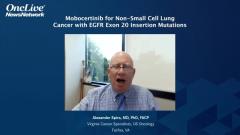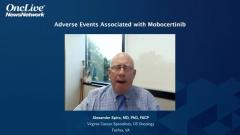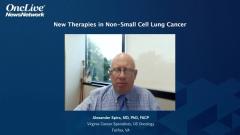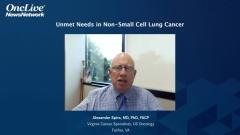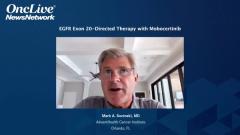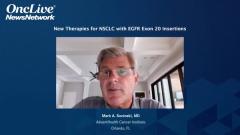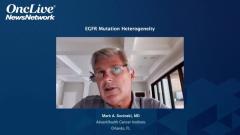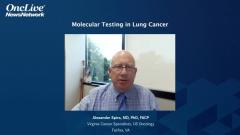
EGFR Mutation Heterogeneity
Recommendations for EGFR testing in patients with non–small cell lung cancer based on the wide heterogeneity of these mutations.
Episodes in this series

Mark A. Socinski, MD: As I mentioned, there’s heterogeneity in EGFR mutations. Fortunately, the vast majority of them are either exon 19 deletions or the L858R exon 21 mutation. They account for 80% to 85% of all EGFR mutations. We also know that between those 2 mutations, EGFR exon 19 deletions are much more sensitive to the available TKIs [tyrosine kinase inhibitors] than the exon 21 mutation. When you go beyond that, the remaining 15% are a mix of sensitivity mutations, some of which are in exon 18. About 10% of all EGFR mutations fall into this category of exon 20 insertion mutations, which is what we focused on today.
Oncologists need to know that all EGFR mutations are not created equal, that you need to read the fine print and stay up to date with regard to what the therapeutic options may be. You need to understand which drugs are not going to work for the type of EGFR mutation that’s before you. Historically, we’ve lapsed into “an EGFR mutation is an EGFR mutation,” but that’s not the case. Even in this class of patients, there’s heterogeneity. Fortunately, most of them are either exon 19 or 21 sensitivity mutations, but 10% to 15% of your EGFR-mutant population is going to fall into this other category, where there’s a mix of resistance as well as other sensitivity mutations that can be treated with other drugs that are FDA approved.
TRANSCRIPT EDITED FOR CLARITY


